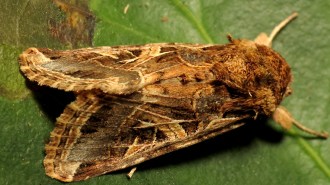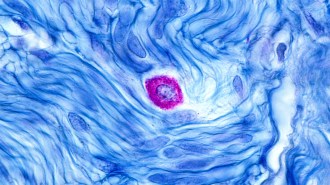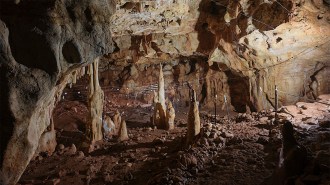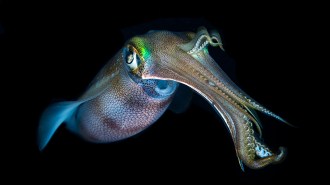All Stories
-
 Health & Medicine
Health & MedicineU.S. hospitals continue to shut down labor and delivery services
More than half of rural hospitals and more than one-third of urban hospitals did not offer labor and delivery services in 2022.
-
 Animals
AnimalsThe screams of thirsty plants may prompt some moths to lay eggs elsewhere
Female moths may pick up on the ultrasonic wailing of distressed plants and opt to lay their eggs on different, healthier plants.
By Jake Buehler -
 Health & Medicine
Health & MedicineSome countries have eliminated malaria, but cases are growing elsewhere
Egypt was added to the list of malaria-free places in 2024, but climate change, conflict and other threats could increase cases especially in Africa.
-
 Science & Society
Science & SocietyThese are Science News’ favorite books of 2024
Books about killer asteroids, human consciousness, nuclear weapons and the collapse of the Late Bronze Age were among our top reads this year.
-
 Health & Medicine
Health & MedicineDuring an allergic response, some immune cells digest others
Mast cells lure and trap other immune cells during allergic reactions, using their compounds to increase inflammation in a process dubbed nexocytosis
-
 Archaeology
ArchaeologyThe oldest known ritual chamber in the Middle East has been found
Engravings and other evidence suggest ancient humans attended religious ceremonies in the cave as early as 37,000 years ago.
By Bruce Bower -
 Artificial Intelligence
Artificial IntelligenceGenerative AI is an energy hog. Is the tech worth the environmental cost?
Generative AI and the hype around it has rung in excitement and alarm bells this year. Here’s how to consider climate, energy and AI's intersection.
-
 Health & Medicine
Health & MedicineA squid-inspired medical device could reduce the need for needles
The device, which directs a liquid by mimicking squids’ high-pressure jets, could provide alternative delivery methods for injectable drugs.
-
 Health & Medicine
Health & MedicineProposed time limits on anesthesia may have jeopardized patient safety
Blue Cross Blue Shield’s now rescinded plan to put time limits on anesthesia put a spotlight on a poorly understood profession.
By Sujata Gupta -
 Physics
PhysicsNotre Dame is reopening. What does that mean for its acoustics?
Researcher Brian Katz is studying the acoustics of the Paris cathedral and how it’s been altered throughout the centuries.
-
 Space
SpaceSpace missions spanned the solar system in 2024
Humankind accomplished new feats in space this year, including scooping up some of the moon’s farside and launching a probe to Jupiter’s moon Europa.
-
 Astronomy
AstronomyAstronomers see the astrosphere of a sunlike star for the first time
Finding a bubble of hot gas blown by the stellar wind from a young star gives researchers a peek at what our sun was like when it was young.